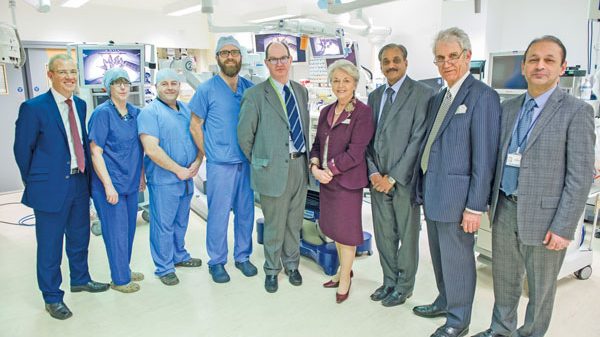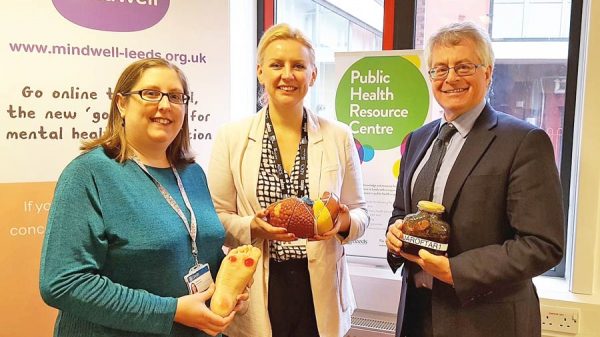One in three people (33%) in Yorkshire and Humber who notice symptoms of dementia in themselves or a loved one wait more than a month before voicing their concerns, an Alzheimer’s Society survey has revealed.
The charity talked to people worried that they, or a loved one, might have dementia, as well as those with a diagnosis and carers.
While one in three respondents waited over a month to voice their concerns, more than one in five (21%) left it even longer – more than six months – before speaking to a medical professional.
Just 17% brought up the issue straight away, while 12% still haven’t raised their worries after spotting the first symptom.
This delay is having a potentially devastating impact on how soon people are able to get help, prompting Natasha Mort, Area Manager for Alzheimer’s Society, to warn: “We can’t continue to avoid the ‘d’ word – we need to face dementia head on.
“We want everyone to know there is support out there if you’re confused about symptoms, or don’t know how to have that first tricky conversation.”
Warren Berman, 70, of Leeds, is living with frontotemporal dementia, the same condition Hollywood actor Bruce Willis revealed he had been diagnosed with earlier this year.
The former community mental health worker did not recognise the early signs of dementia in himself – and it was only when a close friend expressed concerns about his memory that he decided to seek medical advice.
He said: “A good friend was the first one to notice something wasn’t quite right. It was just little things. He asked a question and the answer I gave was out of context, and on another occasion he asked me why I’d moved a table in my house and I simply couldn’t come up with an explanation.
“I would say it was about six months after those first tell-tale signs that I got around to seeing a GP, and another couple of months before I was finally diagnosed.
“I was calm about the diagnosis at first, but after about four to five weeks I was hit by depression. My doctor says it was a delayed reaction.”
Warren, however, has since turned his life around. He has joined a peer support group, become more involved in hobbies such as painting, and has even written articles about living with dementia.
He added: “I do think that for anyone worried about their memory, getting a diagnosis is important, because if you do have dementia then a diagnosis opens the door to support.
“For me, joining a support group and accessing other services has expanded my horizons. I get my bad says, of course, but I’m trying to live my best life.
“And if you’d said to me a year ago that I’d be writing articles about dementia, I wouldn’t have believed you!”
Resident doctor on ITV’s Lorraine and Good Morning Britain, Yorkshire-born Dr Amir Khan, said: “Despite 900,000 people in the UK having dementia, I still see a huge amount of misunderstanding and stigma about the condition in the surgery. A third of us will go on to develop dementia in our lifetimes – we need to change the idea that getting dementia is inevitable as we age – it’s not called getting old, it’s called getting ill.
“Reaching out to ask for help can feel a scary prospect but it’s better to know. Patients I’ve seen getting a timely, accurate diagnosis have had the chance to benefit from treatments and support, from organisations like Alzheimer’s Society, that they’d have otherwise missed out on.”
The charity’s survey of more than 1,100 people – carried out to mark Dementia Action week – found that confusion between dementia symptoms and normal ageing was the top reason people stayed silent (64%), followed by not wanting to worry their loved one (33%), and fears of how their relationships might change (16%).
Worryingly, the survey also revealed there is still a fear of stigma attached to the condition, with 44% saying they were scared people would speak down to them or their loved one after they were diagnosed, or treat them like a child.
In the UK, one person develops dementia every three minutes – that means that by 2040, 1.6m people will be living with the condition. There are currently 900,000 in the UK, including more than 76,000 across Yorkshire and Humber.
Breaking the fear of stigma today will lay the foundation for future generations to access vital support at the first time of asking and ensure no-one battles dementia alone.
Alzheimer’s Society’s campaign – ‘It’s not called getting old, it’s called getting ill’ – encourages people worried about their memory, or that of a loved one, to seek support in getting a diagnosis, using a ‘symptoms checklist’, available on Alzheimer’s Society’s online hub.
Dementia diagnosis rates hit a five-year low during the pandemic, and have stagnated ever since – leaving tens of thousands of people living with undiagnosed dementia.
Timely diagnosis is crucial to manage symptoms and avoid ending up in crisis. The breakthrough Alzheimer’s drugs lecanemab, which has shown to slow the progression of Alzheimer’s disease by 25%, and donanemab by 36%, rely on diagnosing people with dementia as early as possible.
Natasha Mort added: “As soon as you realise something is not right, come to Alzheimer’s Society – you can use our symptoms checklist to help have that all-important first chat with your GP.
“At Alzheimer’s Society we’re dedicated to providing help and hope to everyone affected by dementia – 9 in 10 people told us they benefitted from getting a diagnosis, helping them access the treatments, support and advice a diagnosis unlocks.
“Alzheimer’s Society services were used over 4.5 million times last year, but we know there are more people out there who need us and don’t know where to turn.”
The charity is urging anyone worried about themselves or someone they love to take the first step and contact the charity for support. Visit alzheimers.org.uk/memoryloss or call 0333 150 3456.







